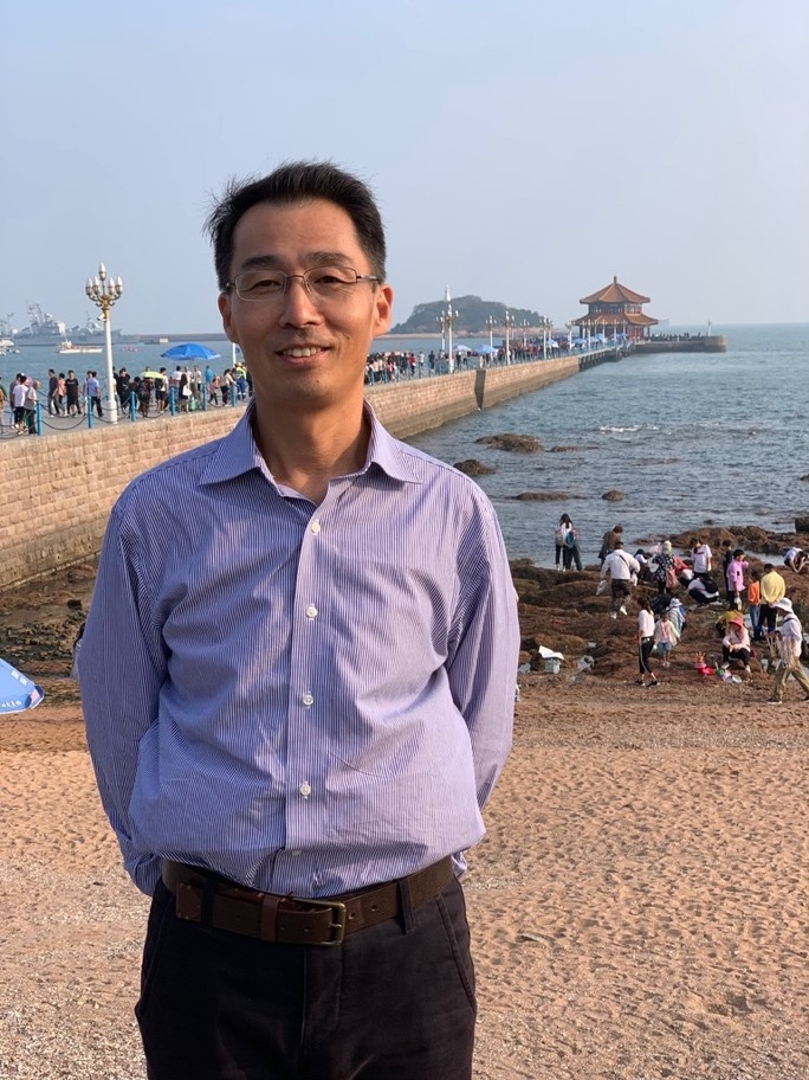
Dr. Changting Xiao BSc, MSc, PhD
Associate Professor Anatomy, Physiology and Pharmacology- Address
- Office: 2D01.4 HLTH, Lab: 2D40 HLTH
Research Area(s)
- Lipid and Lipoprotein Metabolism
- Gastrointestinal Physiology
- Pathophysiology of Metabolic Disorders
About
The prevalence of metabolic related diseases (e.g. type 2 diabetes, obesity, and metabolic syndrome) in Canada and worldwide has reached epidemic level in recent years. These compromised metabolic states are commonly accompanied by lipid and lipoprotein abnormalities (atherosclerotic dyslipidemia complex) that contribute to the increased risks of atherosclerotic cardiovascular disease (ASCVD). At the center of atherosclerotic dyslipidemia complex is abnormal metabolism of triglyceride-rich lipoproteins secreted from the liver and the gut. Understanding how lipids are processed in the liver and the gut may provide novel strategies for the prevention and treatment of dyslipidemia and ASCVD.
The long-term goal of our research program is to obtain mechanistic insights into the physiology and pathophysiology of metabolic disorders to improve health. Our lab uses integrative physiology and systems biology approaches to explore molecular mechanisms and physiological control of lipoprotein secretion in the small intestine and the liver in animal models. Of particular interest, we aim to identify and characterize novel molecules, including gut hormones and cellular proteins, in chylomicron synthesis and secretion in intestinal absorptive cells (enterocytes). We further study the pathophysiology of metabolic disorders, e.g. dyslipidemia and metabolic related fatty liver disease. We aim to elucidate the mechanisms whereby genetic and environmental factors lead to lipoprotein abnormalities and ASCVD. We also use these tools and models to study the mechanism of action of lipid-modifying drugs and identify potential targets for the treatment of dyslipidemia.
Students and fellows interested in joining the lab should contact me via e-mail. In your application, please include a detailed ‘statement of interest’ explaining why you would like to join the lab, unofficial transcripts, and contact information of at least 2 references.
Selected Publications
- GLP-2 regulation of intestinal lipid handling. Mukherjee K, Xiao C. Front Physiol. 2024 Feb 14;15:1358625. doi: 10.3389/fphys.2024.1358625. eCollection 2024.
- Release of Lipids Stored in the Intestine by Glucagon-Like Peptide-2 Involves a Gut-Brain Neural Pathway. Mukherjee K, Wang R, Xiao C. Arterioscler Thromb Vasc Biol. 2024 Jan;44(1):192-201. doi: 10.1161/ATVBAHA.123.320032. Epub 2023 Nov 16.
- Glucose and GLP-2 (Glucagon-Like Peptide-2) Mobilize Intestinal Triglyceride by Distinct Mechanisms. Stahel P,Xiao C, Davis X, Tso P, Lewis GF. Arterioscler Thromb Vasc Biol. 2019 Aug;39(8):1565-1573. doi: 10.1161/ATVBAHA.119.313011. Epub 2019 Jul 11.
- Regulation of Chylomicron Secretion: Focus on Post-Assembly Mechanisms. Xiao C, Stahel P,Lewis GF. Cell Mol Gastroenterol Hepatol. 2019;7(3):487-501. doi: 10.1016/j.jcmgh.2018.10.015. Epub 2018 Nov 2.
- Oral Glucose Mobilizes Triglyceride Stores From the Human Intestine. Xiao C, Stahel P, Carreiro AL, Hung YH, Dash S, Bookman I, Buhman KK,Lewis GF. Cell Mol Gastroenterol Hepatol. 2019;7(2):313-337. doi: 10.1016/j.jcmgh.2018.10.002. Epub 2018 Oct 12.
- Recent Advances in Triacylglycerol Mobilization by the Gut. Xiao C, Stahel P, Carreiro AL, Buhman KK,Lewis GF. Trends Endocrinol Metab. 2018 Mar;29(3):151-163. doi: 10.1016/j.tem.2017.12.001. Epub 2018 Jan 3.
- Pharmacological Targeting of the Atherogenic Dyslipidemia Complex: The Next Frontier in CVD Prevention Beyond Lowering LDL Cholesterol. Xiao C, Dash S, Morgantini C, Hegele RA,Lewis GF. 2016 Jul;65(7):1767-78. doi: 10.2337/db16-0046.
- Book Chapter: Diabetic Dyslipidaemia. Adeli K, Tarr J, Farr J, Xiao C, Lewis GF. In Biochemistry of Lipids, Lipoproteins and Membranes (Sixth Edition) (Ed. Roger S. Mcleod & Neale D. Ridgway). 2016. pp549-573.
